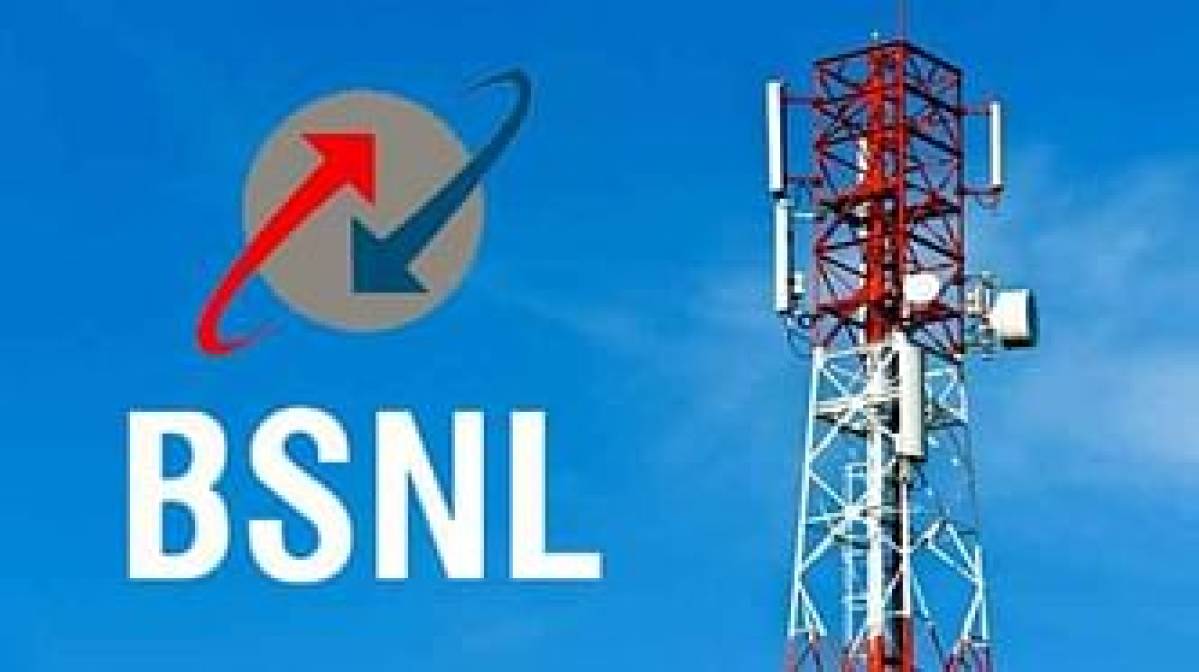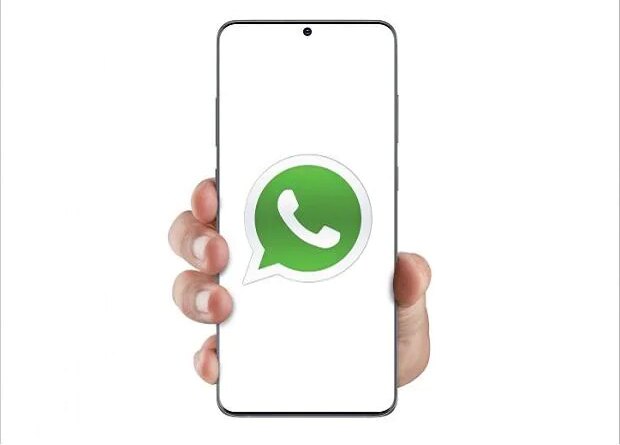The government is planning to merge Bharat Broadband Nigam Limited (BBNL) with the loss-making state-run telecom operator Bharat Sanchar Nigam Limited (BSNL) this month, a senior official has said.
BSNL expects over Rs 1700 bn revenue from services in FY22, a tad lower than previous fiscal, due to removal of call connect charges that used to bring in additional inflows, says Chairman PK Purwar
New Delhi, NFAPost:
The government is planning to merge Bharat Broadband Nigam Limited (BBNL) with the loss-making state-run telecom operator Bharat Sanchar Nigam Limited (BSNL) this month, a senior official has said.
BSNL chairman and managing director PK Purwar at a recent event organised by the All India Graduate Engineers and Telecom officers Association (AIGETOA) said that the government is giving the telecom firm an opportunity for a turnaround.
“The government has taken a policy decision that BBNL is going to be merged into BSNL. This means all work of BBNL at the pan-India level is going to come to BSNL,” Purwar said at the All India Conference of AIGETOA on March 13.
Referring to his meeting with the union telecom minister, Purwar said he had an hour-long meeting to this effect.
BSNL already has a network of over 6.8 lakh kilometer of optical fibre cable (OFC) network.
With the proposed merger, BSNL will get 5.67 lakh kilometer of optical fibre which has been laid across 1.85 lakh village panchayats in the country using Universal Service Obligation Fund (USOF).
Special purpose vehicle (SPV) BBNL was formed in February 2012, to lay out optical fibre network across 2.5 lakh village panchayats across the country using USOF and provide its access to all telecom operators on a non-discriminatory basis.
Telecom operators are required to pay an 8 per cent licence fee on their revenue from sale of telecom services which includes a 5 per cent levy for USOF.
The state governments do not levy right of way (RoW) charge on laying of OFC by the BBNL, which helps it in saving a significant amount compared to the fees that telecom operators are required to pay.
A few BBNL officials said that employees in the department are not in favour of the proposed merger due to non-performance of BSNL on Bharatnet project in the past and pending dues of vendors despite payment already made to the state-run telecom firm by the SPV.
The officials shared a common view that private telecom operators also contribute to USOF and transferring BBNL assets under one player will be against idea and objective of creating the SPV, which was to provide access to rural broadband network on non-discriminatory basis to all players.
When contacted, Purwar said “no such views are in notice of BSNL. The delivery of BBNL to meet the objectives of Bharat Net is much below the desired level. BSNL, as a custodian of USOF assets, will ensure that all such assets are made available to all TSP/ISP and other agencies on arm length principles.”
In his speech at the conference, BSNL CMD asked employees to tighten their belt and put their best foot forward for the growth of BSNL, as the political leadership has given a free hand for the turnaround and there is going to be no capex crunch for the next two years at least.
Purwar said, “in the budget, provision of around Rs 45,000 crore has been made for BSNL. It was earlier Rs 24,000 crore. Earlier provision was only for spectrum. Now, it is spectrum, capex and others. So the government wants to give you a free hand. Can you perform?”
He said that the company is in the last stage of testing for 4G and may approach the board for placing a small order in the month of March, so that supply can start in the month of May and June and ground-level network testing and experience can be done.
“Then it should be taken further after a commercial discussion. The government’s expectation is very clear from us. The Prime Minister wants it to be (done) by August 15,” Purwar said.
He said that the next phase of telecom growth will come from fibre-to-the-home service and in the coming days, 1 lakh mobile base stations will serve as a point of presence for the distribution of fibre-based broadband connections to the subscribers.
“If we lose this opportunity then there is no way that we will have an alternate option. The government is going against its stated policy for BSNL. If you see what is the policy for CPSE.
“The government’s policy is to either perform or perish. The government wants to give BSNL a chance so that BSNL becomes a strategic asset. We have a responsibility to prove ourselves,” Purwar said.
BSNL sees service revenue at Rs 1,700 b in FY22
Bharat Sanchar Nigam expects over Rs 17,000 crore revenue from services in FY22, a tad lower than the previous fiscal, mainly due to the removal of call connect charges that used to bring in additional inflows, according to its Chairman and Managing Director PK Purwar.
Purwar asserted that the state-owned telecom corporation is confident of retaining its customer base and defending its turf with quality 4G services to be launched in the coming months, even as competition intensifies with private telcos gearing up for 5G services.
The start of 5G offerings by private operators will not place BSNL at an immediate disadvantage, as the device ecosystem for the new-age services is still evolving, he said, adding that preparation for BSNL’s 4G services launch is well on track.
Bharat Sanchar Nigam Ltd (BSNL) is targeting a 4G rollout in 2022.
“Despite the challenges, we have been able to maintain stable revenue (from services, excluding other income) in FY22. Against Rs 17,452 crore income from services in FY21, this year we will close at over Rs 17,000 crore of revenue,” Purwar told PTI.
The decline is because of the removal of interconnect usage charges, he added. The call connect charges, which have been scrapped, was bringing in an additional revenue stream of about Rs 600-800 crore for the telecom corporation, and its discontinuation has dried up those inflows.
BSNL’s losses stood at Rs 15,500 crore in 2019-20 and had halved to Rs 7,441 crore in 2020-21.
“For this fiscal, we expect losses to be at similar levels as last year,” the BSNL Chief said.
While substantial savings were derived on account of VRS (which brought down salary costs) and maintaining a tight check on opex, the removal of call connect rates impacted the overall realisations, as BSNL used to be a net IUC (interconnect usage charges) gainer.
The corporation’s focus in the coming fiscal will be a 4G rollout and expansion of Fibre to Home.
“Quality 4G services by BSNL will provide comfort to our customers to remain with us. I believe the 5G handset ecosystem will take its own time to mature,” Purwar said.
Asked how BSNL hopes to compete in a market where rivals are rolling up their sleeves for the 5G auction and subsequent launch of next-generation services, Purwar contended that the telecom PSU will do all it takes to protect its commercial interests.
The spectrum auctions will be conducted in 2022 to facilitate the rollout of 5G mobile services in 2022-23 by private telecom providers. The market is gearing up for the rollout of 5G services that will usher in ultra high-speeds and spawn new-age services and business models.
“Even today, when we have 3G, we are still able to sustain ourselves in the market. Also, I do not expect the lag for 5G services to be similar to that of 4G services,” Purwar said.
The roadmap on FY23 is clear and there has been “good progress” on proof of concept where nearly all critical tests required for commercial deployment on the core side have been completed successfully.
“There is also substantial progress on the radio access network (RAN) side,” he said.
Once the tests are done, BSNL will engage with successful bidders (TCS, Centre for Development of Telematics and Tejas Networks) for commercial discussion, so the procurement process can be taken forward, Purwar explained.
According to Union Budget documents, the government will infuse Rs 44,720 crore into BSNL in the next financial year. The provision is made for capital infusion for the 4G spectrum, technology up-gradation and restructuring in the telecom PSU.
To strengthen the state-owned telecom corporations, the government had approved a revival plan for BSNL and MTNL in 2019.
The revival plan included measures to reduce the staff cost through a Voluntary Retirement Scheme (VRS), administrative allotment of spectrum for providing 4G services with funding through budgetary allocation, monetisation of non-core and core assets to generate resources to retire debt, meet capex and debt restructuring by raising of sovereign guarantee bonds.
BSNL and MTNL have turned EBIDTA positive (operating profit) in 2020-21 as a result of these measures.





